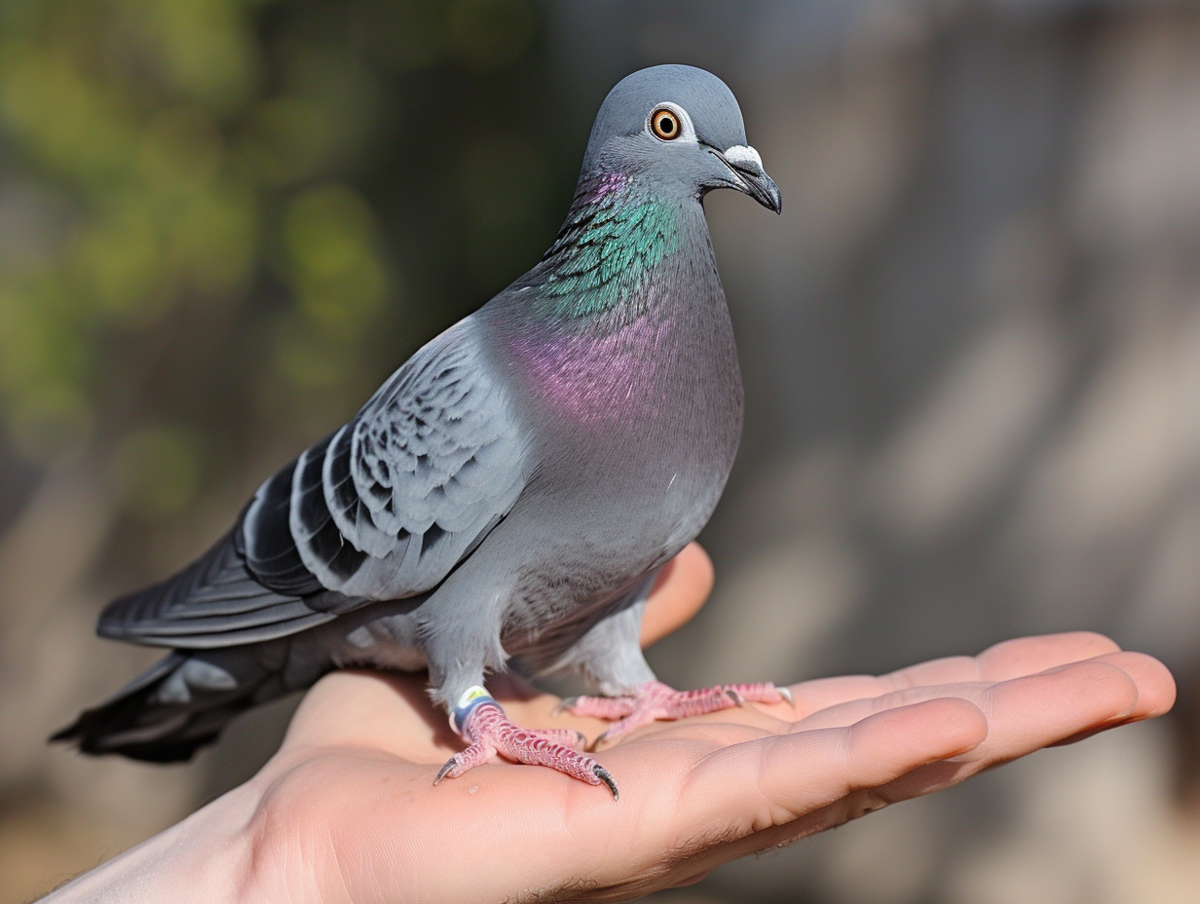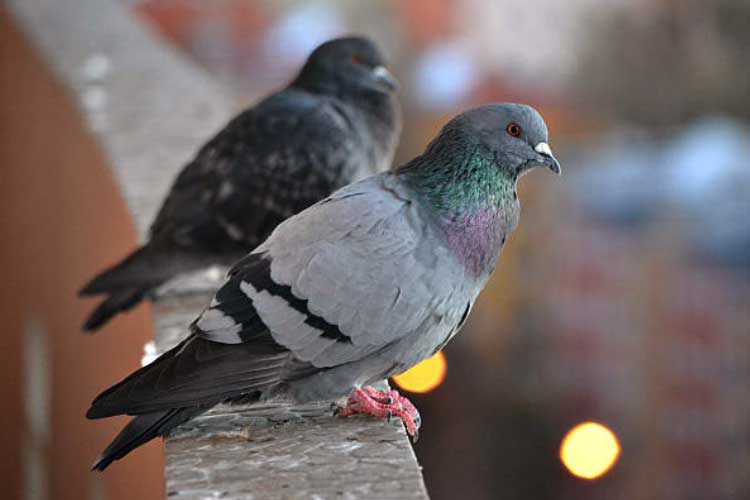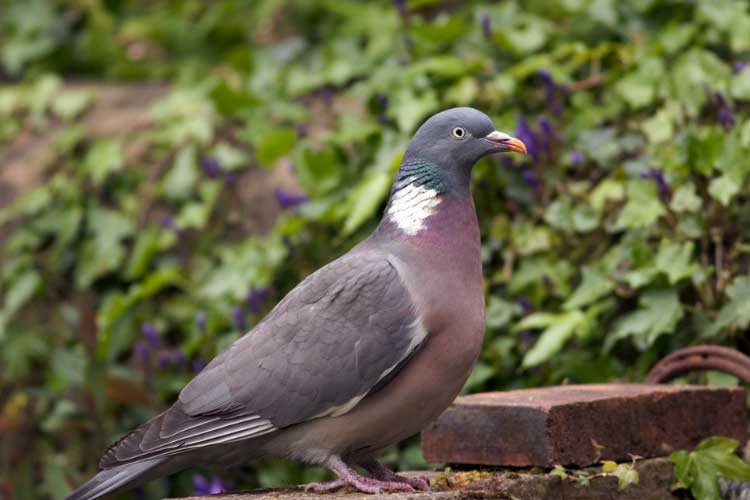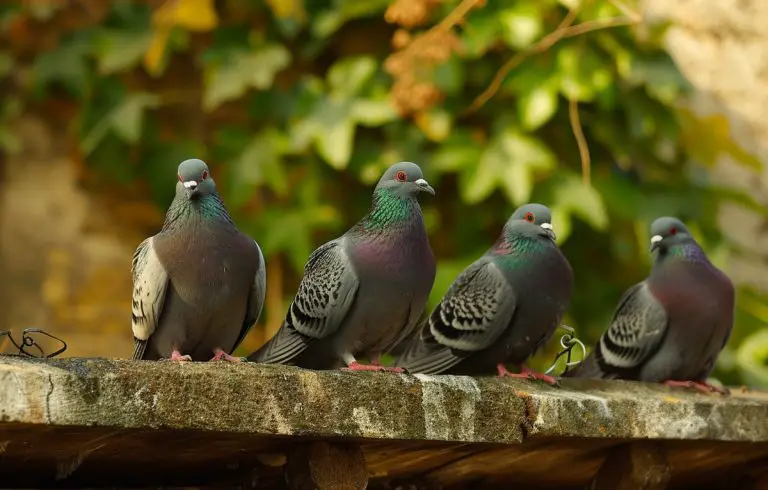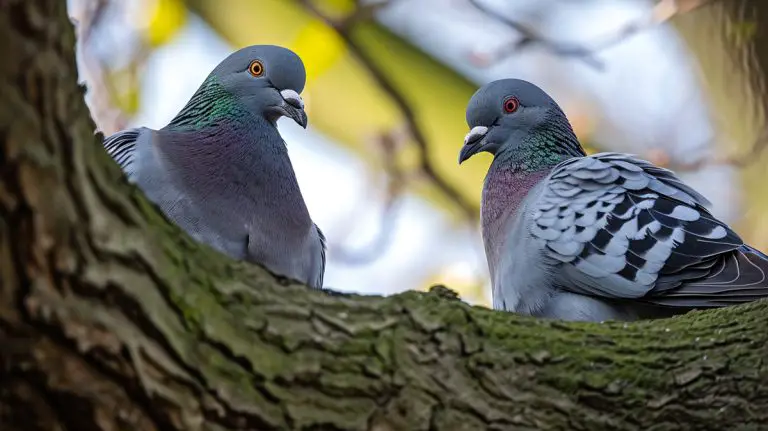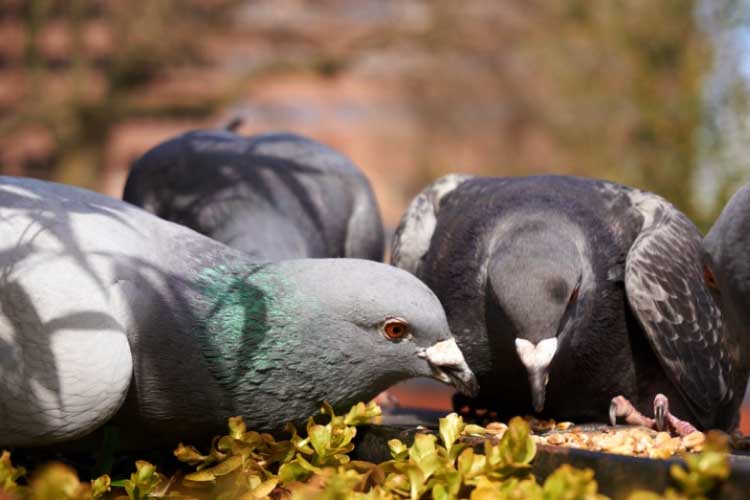Effective Pigeon Parasite Control Tips
Pigeons are fascinating creatures that have become a common sight in urban areas. However, along with their presence comes the challenge of dealing with parasites that can negatively impact their health and well-being. As an experienced bird enthusiast, I have spent years researching and implementing effective parasite control methods for pigeons. In this article, I’ll share my knowledge and insights on how to effectively manage and prevent parasites in these beautiful birds.
Parasites can wreak havoc on a pigeon’s health, causing discomfort and potentially leading to serious diseases. It’s crucial to understand the different types of parasites that pigeons can encounter, such as mites, lice, and worms, and the potential risks they pose. By identifying the signs of infestation and implementing a proactive approach to parasite control, we can ensure the well-being of these majestic birds while maintaining a harmonious coexistence in our urban environments.
Understanding the Importance of Parasite Control for Pigeons
I’ve been studying and researching the topic of parasite control for pigeons, and it’s fascinating to discover just how crucial it is in maintaining the health and well-being of these beautiful birds. Pigeons, like any other living creatures, can be vulnerable to parasites such as mites, lice, and worms. These parasites can cause a range of issues for pigeons, from discomfort and itchiness to more serious health complications. That’s why it’s important for us to understand the importance of parasite control and take proactive measures to protect these birds.
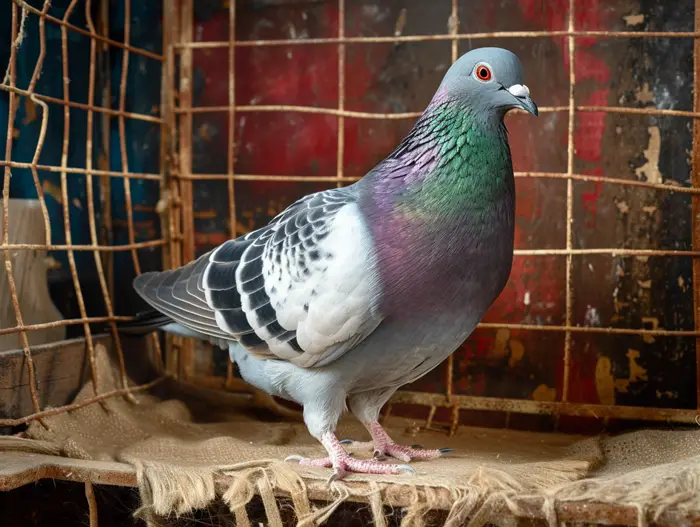
Significance of Parasite Control
By implementing effective parasite control practices, we can prevent the infestation of pigeons by parasites and ultimately improve their quality of life. Let’s take a closer look at why this is so important:
- Health and Well-being: Parasites can weaken pigeons’ immune systems, making them more susceptible to other infections and diseases. By controlling parasites, we can help keep pigeons healthy and thriving.
- Behavioral Issues: Parasitic infestations can cause pigeons to become irritable, restless, and even agitated. They may engage in excessive preening or display abnormal behaviors. Effective parasite control can help reduce these behavioral issues and promote a healthier mental state for the pigeons.
- Urban Environment: Pigeons are a common sight in many urban areas, but overcrowding can lead to an increased risk of parasitic infestations. By controlling parasites, we can help maintain a harmonious coexistence between pigeons and humans in these urban environments.
- Preventing Spread: Parasites can easily spread from pigeons to other birds or animals, potentially leading to a domino effect of infestations. By controlling parasites in pigeons, we can help prevent the spread of these parasites to other species.
Proactive Parasite Control Methods
Now that we understand the importance of parasite control for pigeons, let’s explore some effective methods to address this issue proactively:
- Regular Inspections: Regularly inspect pigeons for signs of parasite infestation, such as excessive scratching, feather damage, or abnormal behavior. Early detection allows for prompt treatment and prevention of further infestation.
Types of Parasites Found in Pigeons and Their Effects
Parasites can greatly impact the health and well-being of pigeons. These tiny organisms thrive on their host, causing a range of health issues. Let’s explore some common parasites found in pigeons and the effects they can have on these birds.
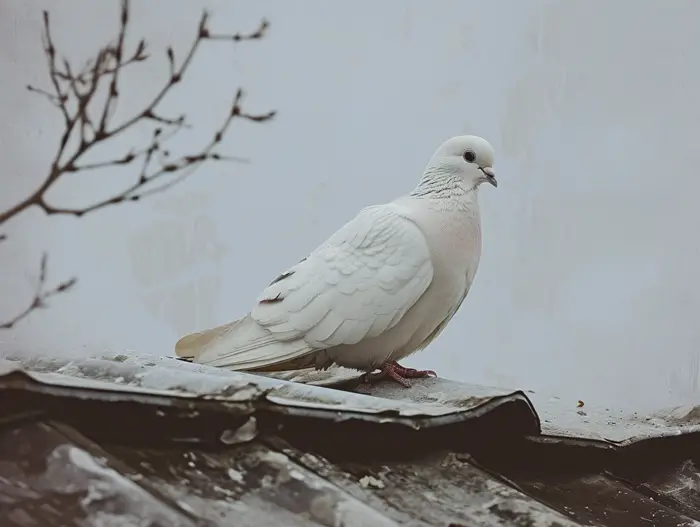
1. Pigeon lice:
Pigeon lice are wingless insects that live on the feathers and skin of pigeons. They feed on the bird’s blood, causing irritation and discomfort. Pigeons infested with lice will often exhibit excessive preening and scratching. If left untreated, lice can multiply rapidly and lead to feather damage and a weakened immune system.
2. Pigeon mites:
Similar to lice, pigeon mites are tiny arachnids that infest pigeons. These mites burrow into the bird’s skin, causing intense itching and irritation. Infected pigeons may develop scaly skin, feather loss, and even open sores. Pigeon mites can also transmit diseases to other birds, making their control crucial for maintaining a healthy pigeon population.
3. Pigeon ticks:
Ticks are common external parasites that feed on the blood of pigeons. These arachnids attach themselves to the bird’s skin and can transmit diseases such as avian malaria and West Nile virus. Ticks tend to hide in the feathers and crevices of pigeons, making them difficult to detect. Regular inspections are essential to catch and remove ticks before they cause harm.
4. Pigeon worms:
Intestinal worms are another common type of parasite found in pigeons. These worms can cause digestive problems and lead to malnutrition and weight loss. Pigeons infected with worms may exhibit symptoms such as diarrhea, poor feather quality, and a reduced ability to fly. Regular deworming is vital to keep these parasites at bay.
5. Pigeon fleas:
Fleas are tiny wingless insects that can infest pigeons, causing discomfort and skin irritation. These parasites are agile jumpers, making it easy for them to move between pigeons and even other animals. Fleas can lay hundreds of eggs, leading to an infestation if not addressed promptly. Pigeons with flea infestations may experience intense itching, scabs, and hair loss.
Identifying Signs of Parasite Infestation in Pigeons

As an expert in pigeon care, I understand that identifying signs of parasite infestation is crucial for effective parasite control. Pigeons can be affected by various types of parasites, which can have detrimental effects on their health and well-being. By being vigilant and observant, you can catch these signs early and take appropriate action. Here are some common signs to look out for:
- Feather Damage – Parasites such as lice and mites can cause feather damage in pigeons. Look for feathers that appear frayed, broken, or missing. This is a clear indication that parasites may be present.
- Itching and Irritation – Parasites like mites can cause itching and irritation in pigeons. Watch for excessive scratching or rubbing against surfaces. If you notice your pigeons frequently engaging in these behaviors, it could be a sign of a parasite infestation.
- Weight Loss and Poor Appetite – Intestinal worms can disrupt the digestive system of pigeons, leading to weight loss and a decrease in appetite. Monitor your pigeons’ weight regularly and observe their eating habits. If you notice significant changes, it may indicate a worm infestation.
- Skin Irritation and sores – Parasites such as fleas can cause skin irritation and the development of sores in pigeons. Keep an eye out for redness, swelling, or wounds on the skin. These signs should not be ignored as they may suggest the presence of parasites.
- Unusual Behavior – Parasite infestations can cause pigeons to exhibit unusual behaviors. Look out for lethargy, restlessness, or changes in their typical routine. If your pigeons are behaving differently, it’s worth investigating the possibility of parasites.
Remember, early detection is key in effective parasite control. Regularly inspect your pigeons for signs of infestation, especially during the warm months when parasites are most active. If you suspect a parasite problem, consult with a veterinarian specializing in pigeon care for proper diagnosis and treatment.
By familiarizing yourself with the signs of parasite infestation in pigeons, you can play an active role in maintaining the health and well-being of your feathered friends. Stay vigilant and take immediate action if you notice any of these signs.
Effective Strategies for Preventing Parasite Infestations
When it comes to effective parasite control for pigeons, prevention plays a crucial role. By implementing the right strategies, you can help keep these feathered friends healthy and free from pesky parasites. Here are some strategies to consider:
- Maintain a Clean Environment: Regularly clean and sanitize the areas where pigeons roost. This helps remove any potential breeding grounds for parasites and minimizes their presence.
- Proper Sanitation Practices: Ensure that bird feeders and water sources are kept clean and free from contamination. Dirty feeding areas can attract parasites and increase the risk of infestation.
- Limit Access to Nesting and Roosting Areas: Prevent pigeons from nesting or roosting in areas where they are not welcome. Install barriers, such as nets or spikes, to deter them from settling in unwanted locations.
- Regular Inspections: Regularly inspect pigeons for any signs of parasite infestation. Look for signs such as feather damage, itching and irritation, weight loss, skin irritation and sores, and unusual behavior. Prompt identification and treatment can help prevent infestations from spreading.
- Effective Bird Control Measures: Implement bird control measures to discourage pigeons from congregating. This may include using deterrents such as noise machines or visual devices, or enlisting the help of professional bird control services.
Remember, prevention is key when it comes to parasite control for pigeons. By taking proactive steps to create an inhospitable environment for parasites and regularly monitoring the birds for signs of infestation, you can help ensure their well-being. Stay vigilant and take action at the first sign of trouble to effectively prevent parasite infestations.
Keep reading to learn more about the types of parasites commonly found in pigeons and their impact on these birds’ health.
Common Parasite Control Methods for Pigeons
As a knowledgeable expert in preventing parasite infestations in pigeons, I regularly employ a variety of effective control methods to ensure the health and well-being of these birds. In this section, I will discuss several common and proven techniques that can be used to control parasites in pigeons. By implementing these strategies, you can create an inhospitable environment for parasites and maintain a clean and healthy space for these birds to thrive.
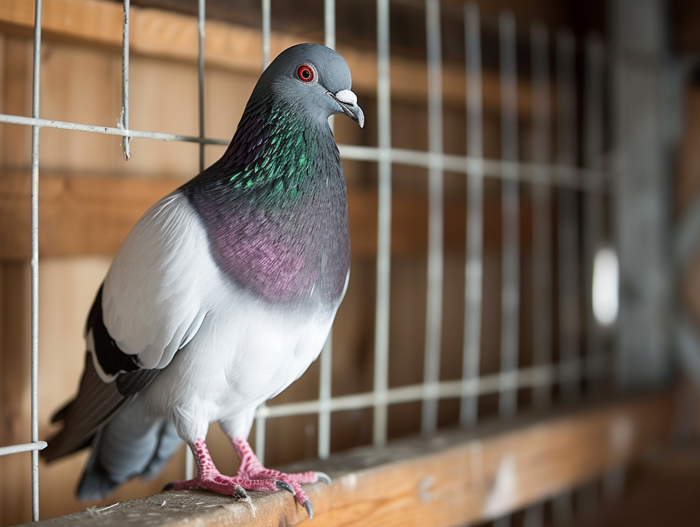
1. Cleaning and Sanitizing: Regularly cleaning and sanitizing the pigeon’s environment is crucial in preventing parasite infestations. This involves removing droppings, feathers, and any leftover food to eliminate potential breeding sites for parasites. Did you know? A clean environment significantly reduces the risks of infestation.
2. Nest Control: Limiting the access of pigeons to nesting areas is another effective strategy. By blocking off potential nesting sites and sealing any openings or crevices, you can prevent parasites from establishing themselves in the pigeon’s habitat.
3. Inspections and Monitoring: Conducting regular inspections is essential for prompt detection of any signs of infestation. By observing the pigeons for indicators such as excessive scratching, feather loss, or visible parasites, you can take swift action to prevent the infestation from spreading. Remember: Early detection is key in controlling parasites.
4. Bird Control Measures: Implementing bird control measures can help reduce the population of pigeons and, subsequently, the risk of parasite infestations. These measures may include the use of netting, spikes, or deterrents to discourage pigeons from roosting or nesting in the area.
5. Veterinary Consultation: Engaging with a qualified avian veterinarian can provide valuable insights and guidance on effective parasite control methods tailored specifically to the needs of pigeons. They can recommend appropriate treatments, medications, or preventative measures to keep your pigeons parasite-free.
By incorporating these common parasite control methods into your pigeon management plan, you can effectively create an inhospitable environment for parasites and reduce the risks of infestation. Remember, prevention is key, and regular monitoring and action are vital to maintaining the health and well-being of these remarkable birds.
Conclusion
By implementing the strategies discussed in this article, you can effectively control parasites in pigeons and create a healthier environment for these birds. Maintaining cleanliness and practicing proper sanitation are crucial in preventing infestations. Limiting access to nesting and roosting areas can also help reduce the risk of parasites. Regular inspections and implementing bird control measures are essential in keeping infestations at bay.
Remember, prevention is key when it comes to parasite control for pigeons. By taking proactive steps and creating an inhospitable environment for parasites, you can greatly reduce the chances of infestations. Regular monitoring of the birds for signs of infestation is important, allowing you to take prompt action to prevent further spread.
If you notice any signs of infestation or require expert advice, it’s always a good idea to seek veterinary consultation. They can provide you with valuable insights and recommend appropriate treatments or prevention methods.
By following these guidelines and staying proactive, you can effectively control parasites in pigeons and ensure their well-being.
